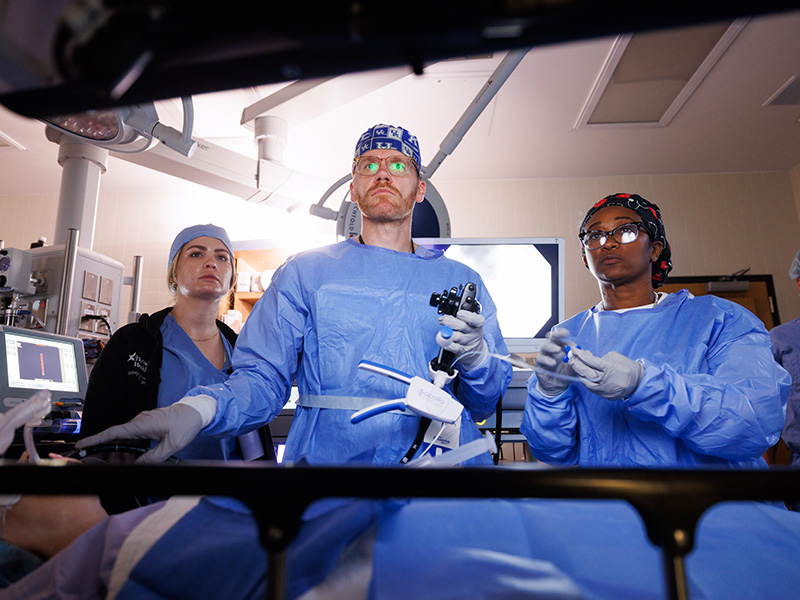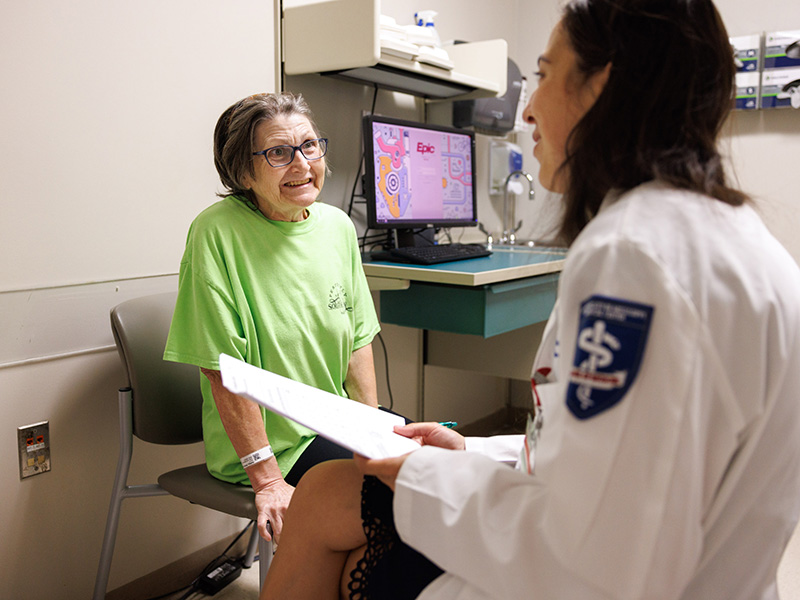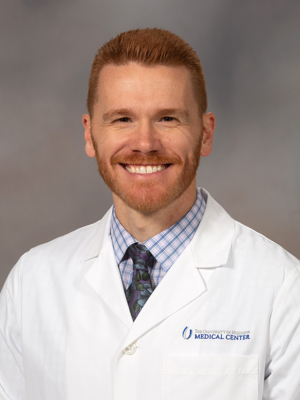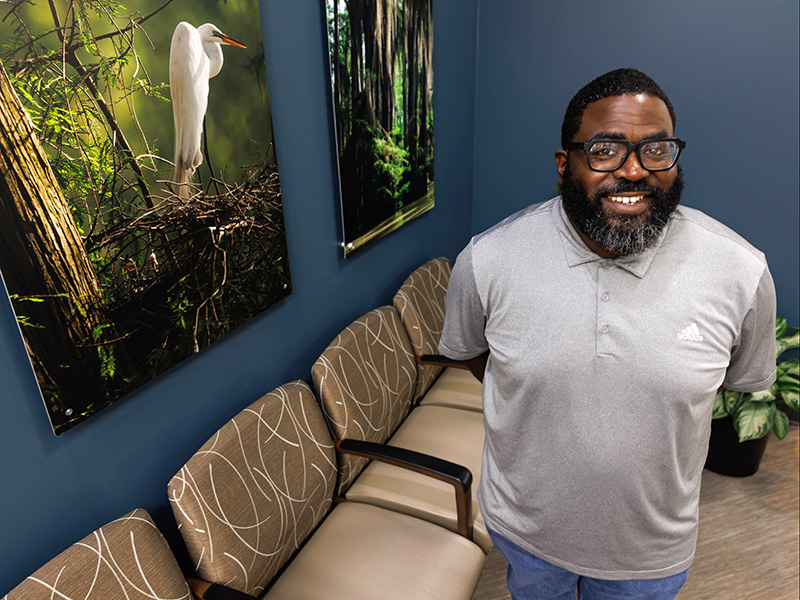Procedure makes food fun again for patients with rare esophageal condition

Eating is like breathing in the South, but sufferers of rare conditions involving the esophagus find themselves unable to do either. Often, they deal with symptoms that presented as other, more common ailments.
Ernest Dixon was told for a decade he had chronic acid reflux and sleep apnea, and treated each as such with over-the-counter meds and quick visits at urgent care clinics.
“Around about 2017, I was at work in Vicksburg teaching middle school and one of my coworkers told me, ‘Your breathing is funny,” said Dixon, 34, an education consultant and part-time soccer coach now living in Clinton. You might want to get that checked out.’ I was like, ‘Nah, I’m fine.’”
Holly Kelley, of Coffeeville, knew something was “off” with her health for years, raising children and working long hours to support them as a single mother came first.

“I used to think my pains was from my daughter sleeping on my chest as an infant,” said Kelley, 63, who at 29 began having intermittent issues keeping food down and had her esophagus stretched multiple times at gastroenterology clinics. “Right now, I work as a CNA in a nursing home, so it was embarrassing being the one passing out and losing my food. I was getting so weak, there were days where I couldn’t do my job.”
Advances this summer in thoracic surgery techniques at the University of Mississippi Medical Center have resulted in relief for people with the worst symptoms of achalasia, when the esophagus’ lower muscle can’t open properly for food to get to a person’s stomach.

“It’s still considered a fairly rare disease,” said Dr. Jacob Moremen, associate professor of surgery and a member of the Thoracic Surgery Division. “Not much has changed in terms of known causes, but the procedural options keep evolving.”
Dixon and Kelley were the two of the first patients to undergo Per-Oral Plication of the Esophagus surgery, or POPE. The technique builds on POEM (Per-Oral Endoscopic Myotomy) as another more advanced, incisionless treatment option. The procedure straightens the esophagus in patients where the bottom of their “food tube” has essentially sagged and formed a bowl-shape area, where food is often caught and sits for long periods.
UMMC is the only provider in the state offering either technique and one of three centers in the nation performing POPE. Moremen has performed more than 100 POEM procedures since 2016 and six of the new POPE procedures since making it available this year.
Achalasia occurs in one or two new cases per 100,000 people and both Dixon and Kelley were in an “end-stage” phase of the disease. “These are patients who have had a POEM or other surgery for achalasia but are now moving towards more advanced disease,” Moremen said. “They were better for many years, but are starting to lose weight and struggle to keep food down again. The only alternative for late-stage cases is removal of the esophagus, which most patients would like to delay as long as possible.”
Dixon’s achalasia diagnosis led to a POEM by Dr. Moremen in 2019, which resolved much of his eating difficulty for several years. Given his late stage at diagnosis, more trouble was on the horizon.

“For the type of problem I had, my food was taking a detour – it was going over to the side, moving down through a gutter and then moving back over to get to my stomach,” he said.
Kelley’s situation had gone on more than 30 years when she discovered a profile online about the start of POEM at UMMC.
“I can remember at first they told me I had heartburn,” Kelley said. “Later, they found some of my chest muscles and ones around my esophagus weren’t working. Right now, I don’t think any of them do. My esophagus had a dip in it right before the exit to my stomach. Food would sit there in the pit. What this surgery has done is eliminated the pit. Food can slide right in now.”
Each stayed on a liquid diet immediately after the procedure, then progressed slowly to more solid foods as their newly-mended and streamlined esophageal muscles strengthened.
“It’s been an adjustment for someone who loves to eat hamburgers and steaks,” Dixon said. “I have just had to take ownership of the concept of ‘No, just don’t do it.’ I was working in New Mexico recently, and I had chicken noodle soup and a chicken quesadilla there, and it went down fine. So, we’ll see where it goes.”
Meats are like a final frontier for Kelley, who is taking things slowly.
“I have to watch the texture of certain foods,” she said. “I’m good with cereals. They thought I was crazy at Piccadilly when I was just there. I told them to just pile on the gravy for the mashed potatoes because I could have it safely!”
Bringing together offerings from the Departments of Medicine and Surgery, plus other related specialties, is the goal of a new clinical center designation directed by Moremen, The Esophageal Health and Reflux Center.
“My goal is to elevate Mississippi’s reflux and swallowing disorder patients by centering most if not all of the diagnostic and interventional expertise here in one place,” Moremen said. “Patients and providers will now have a one-stop shop for difficult problems and an expected level of expertise for even the routine cases.”


